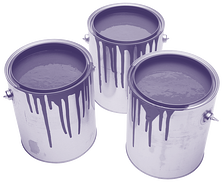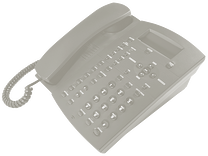You just got asked to Product Manage a sweet new piece of software, and you're pumped! And why shouldn't you be? Product management is one of the most rewarding, challenging, and, at times, exhilarating jobs a person can get. But it is also one of the most difficult ones.
Let me get a little middle-school-paper-y for a second. Wikipedia defines Product Management as:
...an organizational lifecycle function within a company dealing with the planning, forecasting, or marketing of a product or products at all stages of the product lifecycle.
A bit vague and a lot there. So I have to forecast, plan, market, and (unmentioned by wikipedia) develop some product at ALL stages in its lifecycle? Is it possible for a new product manager to do that alone? Not really.
As with most high responsibility jobs, product management also leans on people you can turn to in order to achieve the goals you set for yourself and the product. Having the ability to harness these relationships early on is crucial, but can always be developed over time. As a new product manager myself, I'm still learning the ropes when it comes to responsibility Venn Diagrams, but I've got the following people down as those who are willing to help:

The Technical Lead
The Tech Lead is your go-to for the actual "building" of the product you've been graced with. If you're anything like me, leaning on someone whose technical abilities eclipse yours is a wonderful thing. Get to know him or her. Take the time to ask the right questions and don't be afraid to ask basic ones, too. Invigorate your product knowledge, especially in the beginning, about the technology stack, tests, and plans for future technical tools from this person. Not only will you find their opinion and decision help invaluable, but you will also reach high productivity levels through this collaboration.
The (Interaction) Designer

Do you think you have a knack for art? Maybe you're a business student who always secretly wanted to get involved in making things look pretty? Or maybe you're an engineer who thought design was just a lot of CSS. No matter what your preconception of design is, I suggest scrubbing your mental cache and starting fresh with your UX Designer.
A designer is one of those people who helps you balance what you think you know about user interfaces with what you need to learn about UI. Not only will they help you put into visuals what you have stuck in your head, but they'll also keep you in-tune to the way your users think, down to the button click. Give them an idea, and draw it out together to get started. There's nothing more helpful than having a professional work through an idea with you visually.

The Product Marketing Manager
A product marketing manager is typically in charge of getting the word out about your product and help train the rest of the organization. Whether it's a fancy new feature or an overdue UI update, they help get the messaging down solid. In my case, the PMM provides a much needed boost of "this is cool" while building seemingly mundane product features. Part of your job as a product manager is to effectively sell this tool to all stakeholders, and the PMM is the one to lean on if your sales and marketing skills are a bit lackluster.
The Usability Tester

This person is responsible for keeping you in touch with what your users are asking for and where they're currently struggling in the product. A UX expert has a good handle on your customer base, and if you're coming to this position from an external role, it's incredibly valuable (necessary even) to know your customer. Lean on this person for advice on how and when to test ideas with real-live customers! It's also a great way to jump right in as a beginner, since you'll likely have some action-items after your first few user tests. Depending on how your Product team functions, this person will likely help you plan out beta periods for your app as well, so be sure to work with him or her and ask the right questions when it comes down to figuring out the validity of your idea.
The Customer Service Professional
If you're lucky enough to have a dedicated UX person, you're already on your way to keeping customer concerns front of mind. But what if you need to know what customers are having trouble with without being asked?

This is where a tech support teammate, customer service person, or general boots-on-the-ground guy comes to the rescue. Being in one of these positions is like being a lifeguard, you see some people swimming around enjoying themselves in the sun, but most of the time you're looking out for the poor swimmers. You're trained to help out someone in need, and you're generally wary of the dangers of the water. As a PM, this pain-point information is incredibly valuable for the success and adoption of your product. Or, to continue my amazing analogy, as the owner of the pool you're not going to close down if someone starts drowning in the deep end, but you are going to asses the risk factors that led that event to happen. Point being: get this persons input on the current points of friction in your product.
The Boss
When you get started as a PM, there's one person that can understand the trials and tribulations more

than most other people. This person will likely be your boss. When dealing with difficult situations, especially in the beginning, it can be helpful to get input from someone who has years under their belt. In my case, I'm lucky enough to work with a team of amazing PM's that all have very unique styles, and observe how they make decisions. My boss, being the VP of Product at HubSpot, is a great resource for information on past product decisions that have been made, "beginner" questions about functionality, and all around future guidance. No matter where you are in confidence levels for product decisions, having a more experienced PM to run something by is an amazing benefit to take advantage of.
The Friend
Last but certainly not least, we come to the Friend. This person is, you guessed it, a friend to you! This doesn't have to be a product person, or a technical person, or even someone familiar with the problem. This person simply needs to be someone you trust, and can go to for general advice on decision making. For me, there are many people that fit this role, and it helps a lot when I run things by friends I have in the company. They give me unadulterated feedback, simply because they're not as familiar with the ins and outs of the decision. It's a "shortest distance between two points is a straight line" type thing, because sometimes you need to take a couple steps back to see the simplest thing to do. Of course, decision making isn't the only strength a friend has to you as PM. They also remind you that you're doing good work, that you are making an impact, that you need to enjoy the small things once in a while too.
If you've learned anything from this, I hope it's that building products is not a one-person job. It takes a team of invested, intelligent people to make the right decisions to get shit done. It is not easy, and these relationships won't be built overnight. There's no sugar coating the confusion a PM feels when she or he is in the middle of a difficult and important decision, but leveraging the advice from those around you is the best way to take a step in the right direction.


